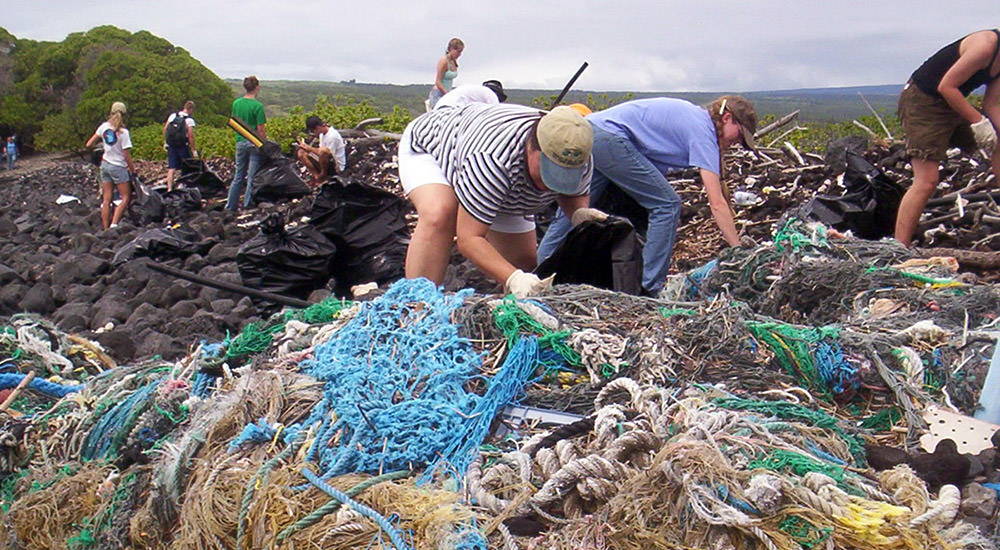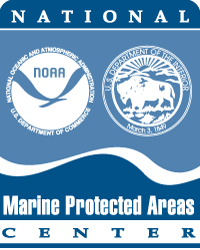
Support Marine Protected Areas (MPAs)
MPAs protect biodiversity, conserve our cultural heritage, and support sustainable production of marine resources. Visit, volunteer and support your local MPA! Take part in a beach clean-up. Encourage others to support measures that help the ocean. Spread the word and join the conversation with us on Facebook.
Eat Sustainable Seafood
Around the world, fisheries are threatened with collapse due to unsustainable fishing methods and ecosystem destruction. When grocery shopping or dining out, choose seafood that is sustainable. Get the Seafood Watch app from Monterey Bay Aquarium and ask your local restaurants and markets to buy from sustainable fisheries.
Use Less Plastic
Plastics that end up in the ocean as marine debris contribute to habitat destruction and entangle and kill many marine animals. Reduce, Reuse and Recycle! Buy products with less packaging. Use reusable water bottles and cloth grocery bags. Recycle whenever possible. Don't release helium balloons outside because once they end up in the ocean, they harm animals that mistake them for food.
Respect Ocean Wildlife and Habitats
Whether you're exploring the ocean by diving, surfing, boating or by relaxing on the beach, be sure to show your appreciation and clean up after yourself. Keep your distance from sea birds, mammals and other ocean wildlife so that you don't disturb their feeding or nesting grounds. Tread lightly on tide pools and other shore habitats. Don't remove rocks or corals. Learn ocean etiquette here.
Reduce Your Energy Use
Climate change impacts on our oceans include increased ocean temperatures, changing ocean currents, sea level rise and acidification of the ocean. It's simple to reduce your energy use. Leave your car at home when you can and ride a bike, walk or use public transportation. Use high efficiency appliances and compact fluorescent light bulbs in your home. Turn off and unplug appliances and electronics when they aren't in use. Turn up your thermostat a few degrees in the summer and down a few degrees in the winter. Want more tips?
Dispose of Household & Hazardous Materials Properly
Motor oil, anti-freeze and other hazardous materials harm our oceans when they aren't disposed of properly. Dispose of hazardous waste in an environmentally safe way. Fix car leaks and recycle motor oil. Don't flush pharmaceuticals, non-degradable products or cleaning products with bleach or phosphates down the drain.
Use Less Fertilizer
When fertilizers are used in gardening and agriculture, the excess eventually ends up in the ocean, which can result in a "dead zone" with little or no oxygen to support ocean life. Use fertilizer sparingly and use ecological or organic fertilizers in your gardens and on your lawns when possible. More gardening tips are here.
Learn All That You Can
The ocean helps regulate our climate and it provides us with food, water, jobs, recreation, medicine and even the air we breathe. Learn more about the ocean through reading, experiencing the ocean directly or by visiting aquariums and surfing the web. Then be sure to share what you learn and inspire others.
 Marine Protected Areas
Marine Protected Areas